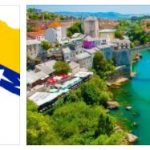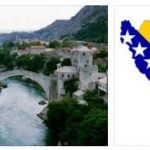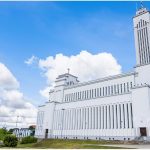Terrorism: The Basques and ETA Part II
In the latter half of the 19th century, Bilbao – the capital of the Basque Country – experienced a sharp development of the heavy industry and an explosive population growth. An influx of immigrants – also from other parts of Spain – came to take jobs in the Basque industry.
According to AREACODESEXPLORER, Basque nationalism originated in the latter half of the 19th century among petty bourgeois and intellectuals precisely in the city of Bilbao. In the alliance between the Basque industrialists and the immigrant working class from the rest of Spain, the traditional Basque middle class consisting of craftsmen, shop owners, teachers and journalists experienced that they lost status and influence.
The nationalist doctrine developed by Sabino de Arana idyllized what he perceived as the free Basque peasant who lived in happy harmony in small rural communities . The Basques in the countryside spoke an ancient language that was long perceived as useless in the modern, industrialized world. Sabino de Arana formed both the Basque Nationalist Party PNV and standardized a written version of the language, called euskera .
6: How widespread is the Basque language today?
Of a survey conducted by the Basque Government in 2006 on the language situation in Euskadi and Navarre and the three French provinces, it appears that well
- 31 percent of the population over the age of 15 in the Basque Country spoke Basque and Spanish equally well. This was an increase from approx. 24 per cent in 1991. In addition, it was found that about 18 per cent understood Basque well, while just under 52 per cent only understood Spanish.
- In the three French provinces, just under 23 per cent were bilingual, down from just over 26 per cent in 1991. Just under 9 per cent understood Basque without speaking it, while just under 69 per cent did not understand Basque at all. The latter was an increase of a few percentage points compared to 1991.
- In Navarre, just over 11 per cent were bilingual, a slight increase from 1991, but just under 10 per cent understood the language – also an increase from 1991.
The Basque language thus seems to be strengthening in the core area of Euskadi, while the picture is far more motley in the French part and in Navarre.
How widespread is the Basque identity?
Here you will find reliable information only from the Basque Country itself. Euskobarómetro conducted 33 opinion polls between 1981 and 2009 on, among other things, the topic of identity.
- The proportion who consider themselves only Basque has averaged just under 30 per cent.
- On average, far less than 10 percent consider themselves only Spanish.
- The rest – just over 60 per cent – consider themselves both Basque and Spanish.
If we add the categories “only Basque” and “more Basque than Spanish”, we find that between 50 and 60 percent end up in this category. This means that the proportion who identify as Basque or mostly Basque has been relatively stable. However, the proportion supporting ETA (see also later) has fallen dramatically.
7: The political situation after 1975
The Basque Country held its first election to the Autonomous Regional Assembly in 1980. The Basque Nationalist Party PNV won and formed a government. Then the PNV ruled the Basque Country, sometimes in coalition with others – both “Spanish” and “Basque” parties – until the spring of 2009. The Basque nationalists thus ruled the Basque Country for almost 30 years. This means that ETA has faced and fought a number of Basque governments based on the same party that ETA itself in its time sprang from.
When ETA has blackmailed in order to pay the so-called “revolution tax” from traders, detonated bombs and murdered Basque police personnel, then ETA has carried out terror against its own – against Basques and Basque institutions. This is just one example of how the violent conflict is first and foremost a conflict between Basques and, to a lesser extent, a conflict between the Basque Country and the Spanish state.
8: How big is the support for ETA?
According to Euskobarómetro’s surveys, 8% of the Euskadi population provided unconditional support to ETA in 1981. In the 1990s, this support fell to around 2% and in the 2000s to less than 1% . At the same time, the proportion in the Basque Country who express that they totally reject everything ETA stands for has increased from 23 percent in 1981 to around 50 percent in the 1990s and over 60 percent in the 2000s. ETA has thus managed to make itself strongly unpopular even among the vast majority of the Basques .













